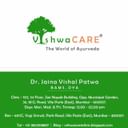Post Natal Diet Plan
Post Natal Diet Plan
Prefered foods during postpartum:
Fresh - warm - oily - soupy - moist - nourishing - delicious - creamy - digestible
Preferred proteins:
• boiled warm milk
• milk puddings w/o egg
• split lentils soaked overnight made into thin soup, perhaps
• almond or other nut milks
• nuts or seeds, well soaked (24 - 48 hours) for snack or prepared with soups,
Vegetables, grains, or sauces
• yogurt or buttermilk drink thinned half with water and seasoned with desired
Spices
• ricotta, cottage and other unfermented cheeses
• chicken and fish soups after about 4 weeks for non-vegetarians
Preferred carbohydrates:
• basmati rice (cook with an extra 1⁄2-1 cup water per cup of rice)
• unleavened wheat such as couscous, pastas, chapattis (unleavened tortillas)
• grains such as oats, quinoa and amaranth.
• favor less refined sugars such as honey, succanat, turbinado, and especially iron
Rich sweeteners such as dates, raisins, molasses and dark indian jaggery if available.
Preferred vegetables:
Prepare all vegetables until tender, season well and enjoy with healthy oils (sesame, sunflower, walnut, avocado, almond) or butter
• artichoke
• asparagus
• avocado
• beet
• carrot
• fresh dill and fennel
• okra
• pumpkin and winter squashes
• yams or sweet potatoes
After the first three weeks postpartum, the following vegetables can be introduced; summer squashes, green beans, broccoli, peeled eggplant, spinach or chard cooked with plenty oil, seasoning, salt, and lime or lemon juice.
Preferred fats:
Use healthy fats and oils more abundantly than normal. This is important for optimal rejuvenation. Fats are building blocks for hormones and are important support and functional components of the cell membrane. Research show that low blood lipids are associated with depression and low hormone levels.
Essential fatty acids (efas - omega 3, 6, and 9) are, as the name indicates, essential to the body, mind and nervous system. The brain does not produce enough of these important oils, and if we get depleted, we are likely to suffer from anxiety, restlessness, and depression. Furthermore, low breast milk production and engorgement has been linked to low efas. The brain is more than 60% fat and needs a lot of healthy oils for its health.
• flax seed oil
• ghee (clarified butter)
• butter
• sesame, toasted sesame, and sunflower oils
• coconut and olive oil in the summer


+1.svg)
